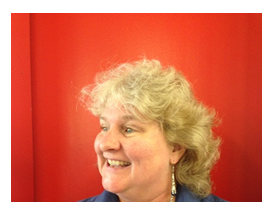2013.06.18
Number of women in ICT “woeful” globally and in Africa
The role of women in ICT across Africa- and, indeed, the number of women embarking on careers within the sector, continues to attract more attention. It is a subject fuelled by the growth of the sector across the continent and the need for companies to replenish skills, develop HR and reinforce their ability to compete.
Stats SA recently released figures related to South Africa’s unemployment scenario, which, last month, stood at 25.2%.
The issue of skills availability and development, particularly within the ICT sector, is ongoing with many companies looking to source technically-proficient candidates.
ThoughtWorks, a global software development company, has an office in Braamfontein, South Africa. Its core focus is on revolutionizing software design, creation and delivery, as well as solution production for the software environment.
Part of its mandate is to recruit the services of locals who are passionate about a career in the ICT sector.
ITNewsAfrica spoke with Dr Rebecca Parsons, CTO at ThoughtWorks, to gather insight into the issue, the challenges and how the company is positioned to help.

Dr Rebecca Parsons, CTO at ThoughtWorks
What is your impression of the IT skills scenario currently playing out in SA and in Africa? What are the main challenges, most sought after skills and how can this be effectively addressed?
A major issue is the focus on individual work. With all the focus on start-ups and individual coding competitions, people are not learning how to work collaboratively and in teams. Taking advantage of technology to accelerate the development of Africa will not happen relying on one or two person projects. It will require either importing solutions from the West or by focusing effort on developing the skills of working on a larger software development team. These skills include engineering practices like pair programming and Test Driven Development, project management approaches like Scrum and other Agile Methodologies, testing practices particularly around automation, and continuous delivery and devops practices.
In terms of demographics, who is demonstrating the most eagerness to embark on a career in ICT?
This is difficult to answer as the lack of opportunity in ICT makes it difficult to track and separate the issues. In countries like Ghana for example, the job market for software development is quite limited and so people look more towards systems, database and network administration roles.
What is the biggest challenge in attracting more people?
I think the lack of role models is a big challenge. The stereotype of developers in particular is not attractive to many people. It is important to change the face of software development to inspire more people to get involved or to feel like a career in ICT is possible for them. In addition, we need to reshape the way we teach technology to be engaging to a broader set of people. We need to dispel the idea that programming is too hard to learn. While there are clearly things that are necessary to understand, the perception is that only select individuals can succeed. We need a breadth of backgrounds entering the technology field to adequately address the breadth of solutions needed.
What is your view of the quality, access and effeciency of ICT training across Africa? What are the strengths and the areas that require more attention?
I think it is important to distinguish between more formal training from colleges, universities and other degree and certificate programs from the training and development opportunities that exist. In the countries we currently have offices (Kampalaand Braamfontein/Johannesburg) there are good universities. However, like most universities, there’s still the need for more practical experience. The technical communities provide important opportunities for continuing learning and skills refinement. In addition, ICT training is still very focused on the individual rather than on team dynamics.
If we focus on the role of women in ICT, a topic that is gaining more attention, is there an improvement in the number of women entering the field, are companies doing enough to attract more females, particularly in terms of executive leadership of tech companies?
There is still a woeful lack of women in technology globally and Africa is unfortunately not any better. Development roles, leadership pipelines and leadership development all need attention. We need more role models for women in technology, and this situation is something we are working hard to address. For example, there’s an organization called Black Girls Code that was founded in the US and that we have brought to Africa. Programs such as this help build the pipeline, but we need to consider the challenges women face at all stages of the pipeline.
Recruitment is also an issue that impacts on the success of generating and implementing core technical skills, what is your opinion?
For us, recruiting in Africa has been a challenge as we attempt to adapt our processes and expectations to the African context. We are also looking at how we can on-board people into our organization and into our way of working. We believe strongly in building individual’s skills over time, and so we also emphasize potential as well as current expertise. We grew the company by hiring young talented people with great potential and provided them the opportunity to learn. We plan to follow this same model as we grow our footprint in Africa.
By Chris Tredger
2013/6/10
Source: IT NEWS AFRICA


